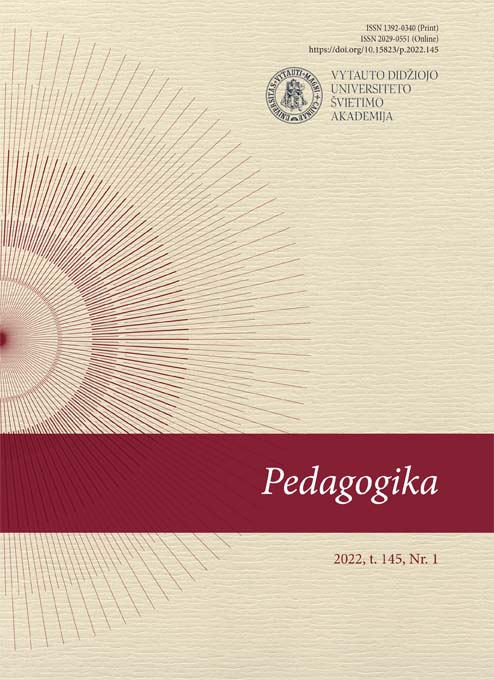Vaikų savarankiško gyvenimo įgūdžių ugdymasis bendruomeniniuose vaikų globos namuose: vaikų patirčių analizė
The Development of Independent Living Skills in Children at Community Children’s Care Home: the Analysis of Children’s Experiences
Author(s): Rita Raudeliūnaitė, Vida GudžinskienėSubject(s): Education, Pedagogy
Published by: Vytauto Didžiojo Universitetas
Keywords: Community children’s care home; Experiential learning; Independent living skills;
Summary/Abstract: Straipsnyje pateikiami kokybinio tyrimo rezultatai, atskleidžiantys vaikų savarankiško gyvenimo įgūdžių ugdymąsi bendruomeniniuose vaikų globos namuose. Aptariamos savarankiško gyvenimo įgūdžių ugdymosi galimybės, susijusios su pasikeitusia fizine, socialine ir emocine globos namų aplinka, pasikeitusiu kasdienės veiklos organizavimu. Bendruomeniniuose globos namuose vaikai ugdosi buitinius, bendravimo ir bendradarbiavimo, asmeninius, sveikatai palankius, finansinio raštingumo, mokymosi ir profesinės karjeros įgūdžius. / The article reveals the results of a quantitative research regarding the development of independent living skills in children at the community children’s care home based on the experience of children. The following two aspects of the development of independent living skills are analysed: 1) opportunities to develop independent living skills at the community children’s care home; 2) how and what independent living skills children develop at the community children’s care home. 9 children from a community care home, whose age ranged from 17 to 18, participated in the research. The article discusses independent living skills development opportunities in children, which are related to the changed physical, social, and emotional environment at the community children’s care home and the changed organizing of daily activities at it. At the community children’s care home, children develop domestic work, communication and cooperation, financial literacy, learning and career planning, health-friendly skills which are important for independent living. Children develop the aforementioned skills by communicating and cooperating with each other and other people, participating in role-playing games, modelling and discussing various life situations during individual and group conversations, becoming involved in decision-making, daily and leisure activities planning, organizing, and their performance.
Journal: Pedagogika
- Issue Year: 145/2022
- Issue No: 1
- Page Range: 233-257
- Page Count: 25
- Language: Lithuanian

